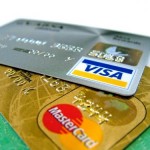Have you ever used your debit card to make a purchase or withdrawal that is greater than your checking account balance? Perhaps you have a friend or family member that complained about the bank allowing them to overdraw their account and then charging a hefty fee. Banks earn tens of billions of dollars in overdraft fees each year, but a new regulation will empower consumers to protect themselves from debit card overdrafts.
On July 1, a new Federal Reserve rule will require banks to obtain permission from their customers before allowing them to overdraw their accounts when using a debit or check card. This means that you have to opt-in in order to overdraw your account. If you don’t opt-in, then you won’t be charged an extra $35 for buying a $5 sandwich that overdraws your balance. (The new regulation doesn’t apply to paper checks that are bounced.)
Banks don’t want to lose this revenue source, so many are framing overdraft opt-in as a way to ensure that you can get money when you need it. But remember, if you choose to allow overdraft on your debit card, you will be subjected to fees even when you overdraw your account by just a few pennies.
It’s your choice: Do you want your debit transactions and ATM withdrawals to go through, knowing that the bank will assess overdraft fees, or would you prefer to have your purchases and withdrawals for amounts greater than your balance declined so that you don’t get hit with fees? If you do nothing, you’ll be protected from debit overdraft fees and you won’t be able to spend more money than you have in your account. But if you choose to opt-in to allow overdrafts, remember, it will cost you.

